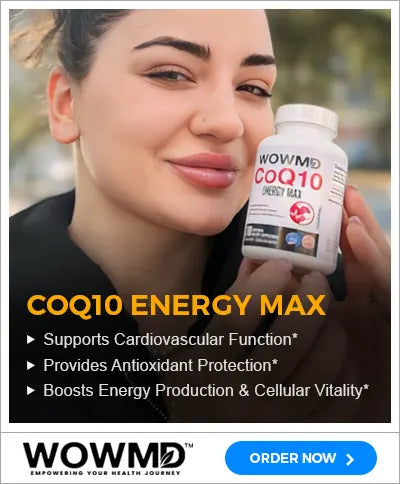Vitamins and Supplements That Boost Energy, According to Experts
Feeling tired and run down, it’s possible that you’re not getting enough nutrients from your diet. Sometimes, taking supplements can help. But which ones are best for energy? Below, we’ll review the top vitamins and supplements for boosting energy.

Popular Stories
- Best Liquid B12 Supplement: Find out its Dosage & Health Benefits
- Best BCAA Supplements for Fat Loss and Muscle Retention
- Best Maca Root Supplement For Men’s Health, Hormones, & Well-Being
- Best Acai Berry Supplements: The Ultimate Buying Guide
- Spirulina Benefits for Women: Superfood for Skin & Hormones
- Best Foods for Weight Loss: Healthy Meal Options to Try
References
References
- B Vitamins: Functions and Uses in Medicine: https://www.ncbi.nlm.nih.gov/pmc/articles/PMC9662251/
- Iron Deficiency Anemia: https://www.ncbi.nlm.nih.gov/books/NBK448065/
- Magnesium Status and Stress: The Vicious Circle Concept Revisited: https://www.ncbi.nlm.nih.gov/pmc/articles/PMC7761127/
- Interaction of vitamin C and iron: https://pubmed.ncbi.nlm.nih.gov/6940487/
- Adenosine, caffeine, and sleep–wake regulation: state of the science and perspectives: https://www.ncbi.nlm.nih.gov/pmc/articles/PMC9541543/
- Creatine for Exercise and Sports Performance, with Recovery Considerations for Healthy Populations: https://www.ncbi.nlm.nih.gov/pmc/articles/PMC8228369/
- Carnitine: https://ods.od.nih.gov/factsheets/carnitine-healthprofessional/#:~:text=Carnitine%20plays%20a%20critical%20role,(ATP)%20%5B4%5D
- Coenzyme Q10: https://www.ncbi.nlm.nih.gov/books/NBK531491/


 Skin Detoxification Bundle
Skin Detoxification Bundle Complete Weight Loss Bundle
Complete Weight Loss Bundle Heart Care Bundle
Heart Care Bundle Better Immunity Bundle
Better Immunity Bundle  Men's Immunity & Prostate Health Bundle
Men's Immunity & Prostate Health Bundle Stress + Energy + Wellness Combo
Stress + Energy + Wellness Combo  Energy Booster Combo
Energy Booster Combo Natural Skin Care Bundle
Natural Skin Care Bundle Workout Supplements Combo
Workout Supplements Combo Cognitive Health & Vision Combo
Cognitive Health & Vision Combo Joint Health Support Combo
Joint Health Support Combo





































